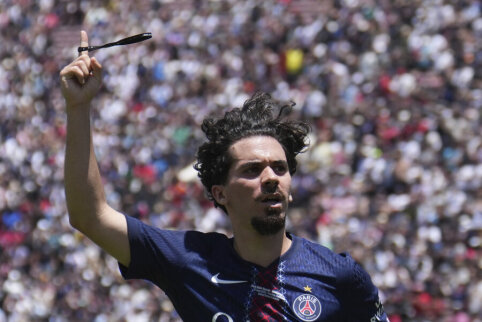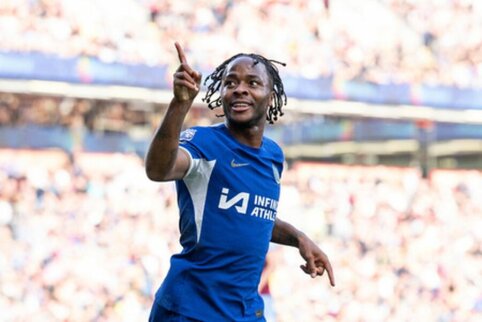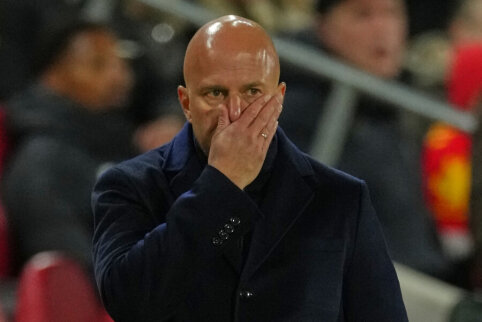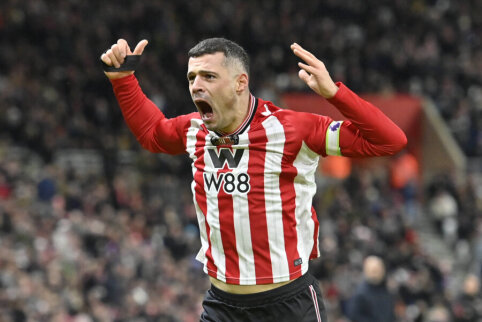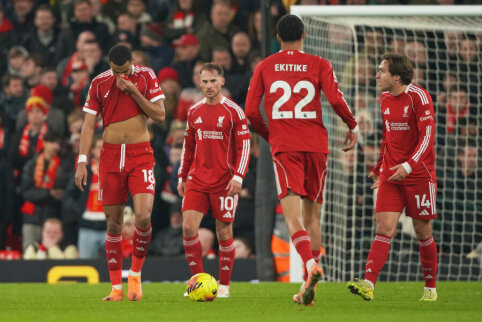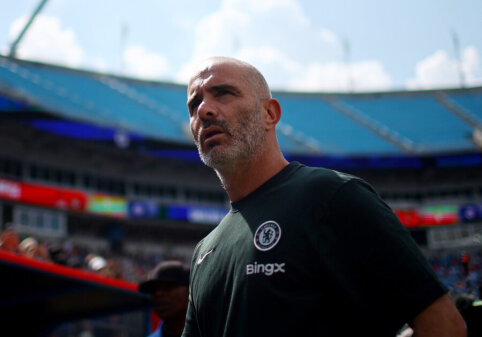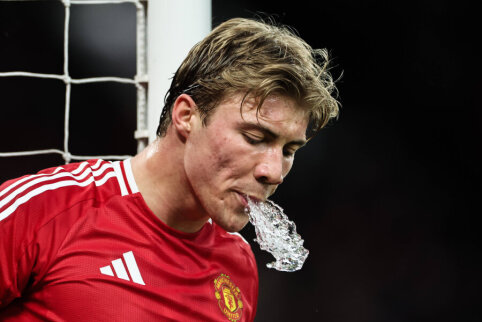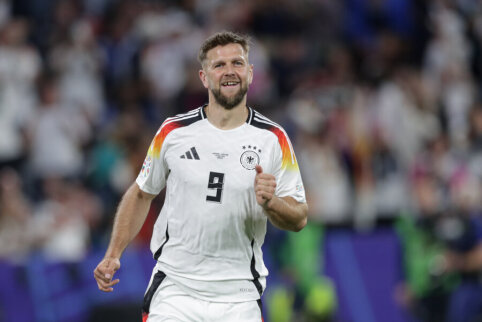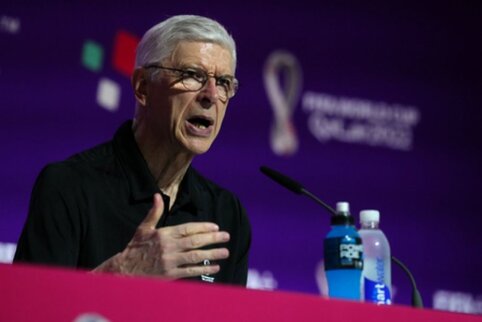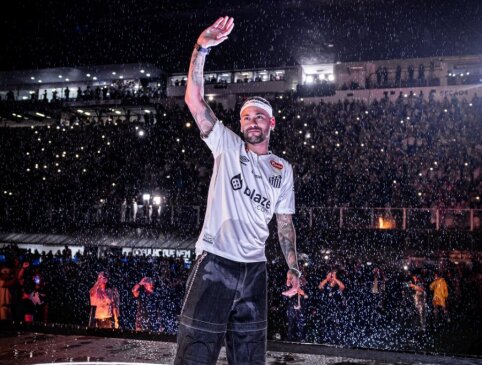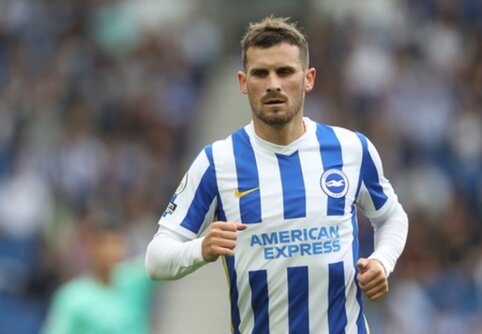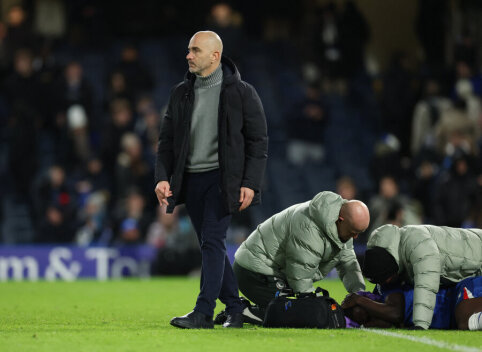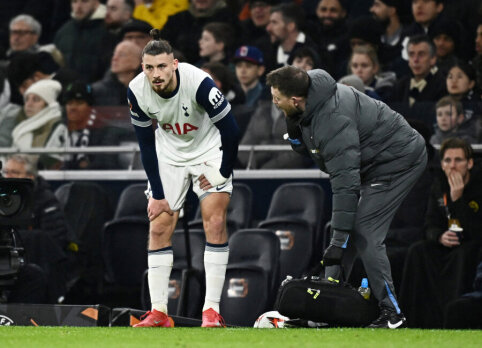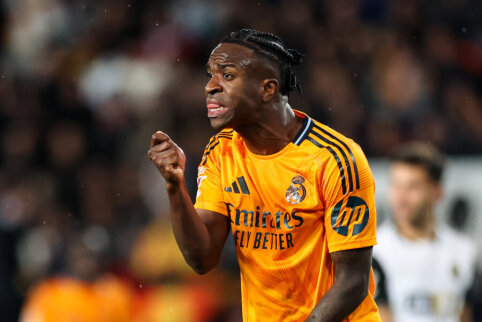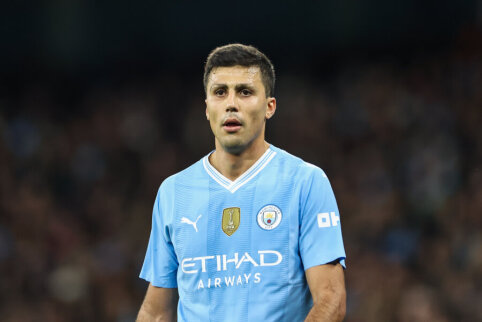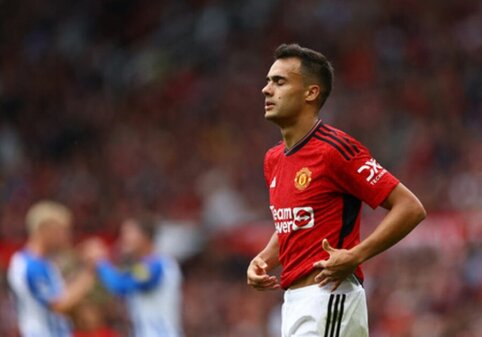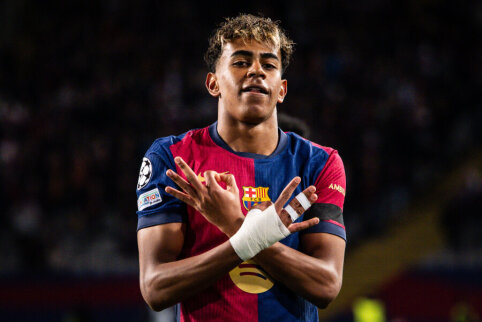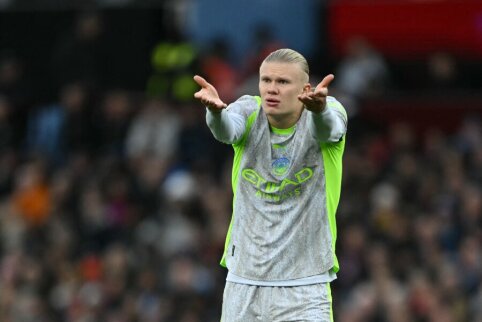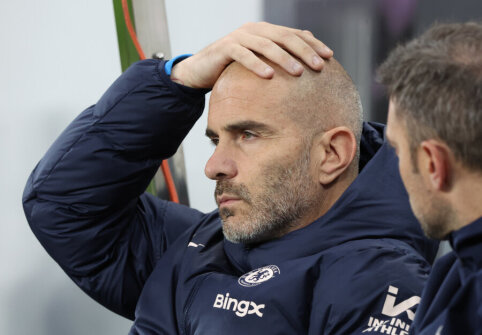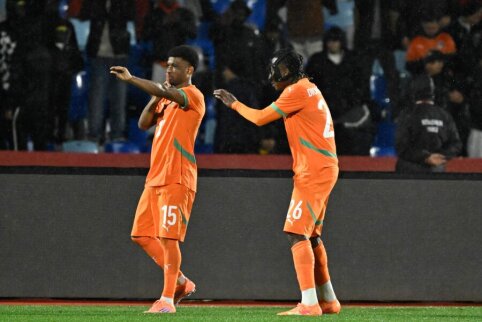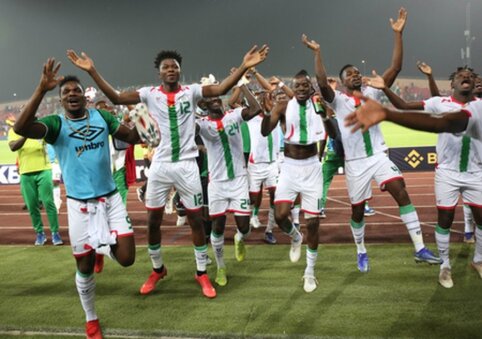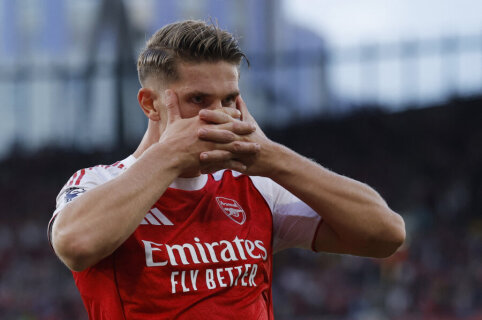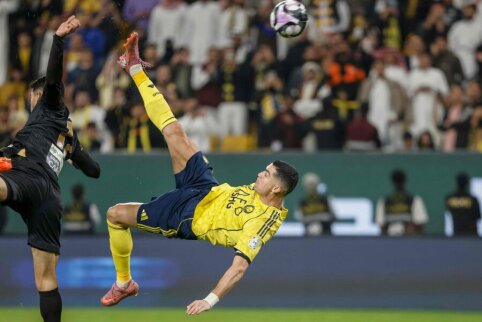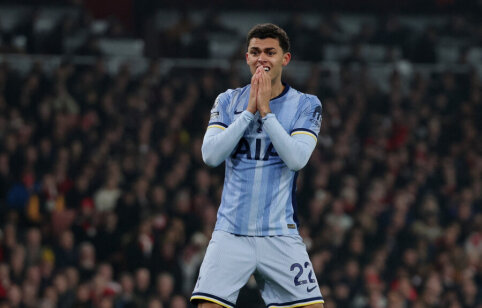 © EuroFootball.com
© EuroFootball.com
As already reported earlier, American tycoon Malcolm Glazer acquired a controlling stake in the club's shares, and now has increased his share to 75.7%, allowing him to make the club a private entity. Furthermore, yesterday official offers to sell their share were sent to all remaining shareholders.
Overall, even if Glazer does not acquire any more shares, he has every reason to be pleased with himself. The innocent idea of buying the world's most expensive club, first announced last October, has practically become a reality. With the existing share package, Glazer would have enough to take the remaining shares off the London Stock Exchange and attempt to initiate a change in the club's legal status (in other words, converting "Man Utd" into a private company, which would practically allow the magnate to freely use the club's assets, including players and the stadium).
However, this will be difficult for Glazer to accomplish: any remaining shareholder, if he owns at least 5% of all shares, can challenge such reforms in court. And we can assure you that there will certainly be those willing to take it to court: the anti-Glazer campaign is gaining momentum every day, and shareholders from the ranks of "Man Utd" fans intend to go all the way.
On the other hand, if the American succeeds in increasing his shareholding to 90%, he will concentrate absolute control of the club in his hands. Such a prospect does not satisfy the fans at all, and in recent days many of them have joined the Shareholders United group, which is taking all measures to maintain a critical 10.5%.
Shocking news in the market
It is said that Glazer's interest in "MU" began last fall. But in fact, the Florida multimillionaire took his first step in March 2003 when he acquired the first 2.9% of the club's shares. This purchase was seen as a modest investment, and few paid attention to it. However, by October 2004, Glazer's shareholding had increased to 28.1%. At that point, he was already the second-largest shareholder of "Man Utd" after Irish companions McManus Jr. and Magnier (together they owned 28.7%). And it was then that Glazer first, albeit unofficially, offered to buy the controlling stake. This idea was firmly rejected by the board of directors of Manchester club.
Two months later, Glazer launched another attack. And again, "Man Utd" executive director David Gill, on behalf of the board of directors, refused, noting that the implementation of a potential owner's business plan would plunge the club into debt.
Undeterred, Glazer made another attempt in February with Proposal No. 3, based on a new, more detailed development plan for the club, which the board of directors considered "more attractive" (even though the possible amount of debt still haunted them). Negotiations began: Glazer was either offered to "increase the amounts" or stop trying to buy the club. In addition, he was given specific conditions and deadlines when the deal could take place.
Further events unfolded in the style of Hollywood blockbusters. On May 10, Magnier and McManus Jr. were informed of Glazer's offer to buy their share for 227 million pounds. The businessmen quickly realized that their net profit in this case would be 92 million, which became more than a convincing argument for the Irish companions. Glazer had just 24 hours left to collect and transfer the necessary amount. And he managed to do it with two minutes to spare!
When the London Stock Exchange opened on the following Monday, it was revealed that the clever American, wasting no time, owned more than 75% of "Manchester United" shares. This came as a shock.
Is the debt pit really that scary?
In the list of the wealthiest Americans published monthly in Forbes magazine, Glazer ranks 584th. The tycoon, who manages a chain of shopping centers and invests funds in various projects, is valued at $1.1 billion. Of course, quite a lot, but from another perspective, not so much, especially if you have decided to buy "Man Utd".
According to information from the "Sunday Times," the final $790 million that Glazer paid for the club comes from three sources. Firstly, it is the tycoon's own funds - around $272 million. Another $265 million is a loan Glazer received from JP Morgan bank. The annual loan repayments amount to $18.5 million ($51,000 per day!). And finally, Glazer borrowed another $275 million from the New York investment triumvirate, including funds Citadel, Och-Ziff Capital Management, and Perry Capital. In total, to repay the debts, the magnate will have to pay $126,000 (£231,000) per day!
"You were everything to me. Be well, 'Man Utd'! Rest in peace!" - these words were written on a poster unfurled by fans last Sunday at the "Red Devils" match against Southampton. At that time, the situation was not entirely clear, but thousands of "Man Utd" fanatics were already convinced: disaster had come.
"Glazer got a club without a single penny of debt and immediately hung on it the burden of the hard-to-understand $126,000 per day!" - dissatisfaction was expressed by Shareholders United vice president Sean Bones. - "His proposed business plan will not work under any circumstances, and therefore we will do everything to prevent this American from executing it."
Nevertheless, fans who are staunchly anti-Glazer are likely to thicken the plot. Just look at the other English league clubs to understand that football club debts are practically an unavoidable reality in our time. For example, the new "Arsenal" stadium - the "Emirates Stadium," named after the main sponsor, cost the club £357 million. And, of course, this money had to be borrowed by the Londoners. But these debt sistrums do not cause hysteria in the camp of London club fans.
One way or another, the "Man Utd" leadership is convinced that today's fans' demonstrations are a temporary phenomenon. Here's what one of the Manchester club employees holding high positions told the same "Sunday Times":
"We had similar problems a few years ago when media magnate Rupert Murdoch tried to buy the club. Then everything calmed down. Those who are categorically against the sale of the club are an absolute minority - in fact, not more than 1% of all club fans. And personally, I see two disadvantages in Glazer that currently prevent him from earning the respect of fans: he doesn't quite understand football and has an unpleasant appearance."
Protest Actions
Indeed, "Man Utd" fans do not tire of mocking Glazer's appearance, which reminds them of a troll. And as for the claim that there are not many dissatisfied people, this statement can be doubted. According to the British media, the number of members of Shareholders United opposing Glazer has increased by 50% in the past couple of months and amounts to about 30,000.
"Every day, up to a thousand people join our ranks," says Sean Bones. - "This gives hope. We believe that we will be able to regain the club for ourselves. Even if it takes two to three years."
Manchester team fans are irritated by everything related to the sale of their club. For example, a few days ago Glazer's son Joel said in an interview that their family had been loyal fans of "Man Utd" for many years. The response - a wave of dissatisfaction.
"This statement is a slap in the face to true 'Man Utd' fans," said one of the leaders of the Independent Manchester United Supporters' Association, Mark Longden. - "Does this guy think that someone will take his words at face value?!"
Various initiative groups are already preparing various protest actions. For instance, members of the same Independent Association plan to attend Saturday's FA Cup final match dressed in black and with black flags. Another, more radical group of fans plans to completely boycott the final matches and several "Man Utd" matches in the next season's Champions League to achieve the club's removal from the list of participants in this tournament. "This is war! And during war, all means are justified," says an activist of this union who did not want to reveal his identity. - "We will not rest until Glazer leaves our club in peace."
But the most effective action seems to be the appeal of Shareholders United to "Manchester United" fans worldwide, urging them to refrain from purchasing any products with club symbols (it is no secret that the sale of merchandise constitutes a substantial part of Manchester club's budget).
"If we do not buy merchandise, as well as beer and food at 'Old Trafford' stadium and its surroundings before the matches, it will be a serious blow to Glazer's pocket." - believes Sean Bones. - "The revenue from all these sales accounts for almost a third of all the money the club earns. It is also necessary to boycott the products and services of the main 'MU' sponsors - Vodafone, Nike, Budweiser, Anheuser-Busch, and Audi."
What lies ahead for the Premier League? Fans are guided by emotions. Meanwhile, analysts are plagued by another question: how does Glazer intend to exploit the "cash cow" by the name of "Manchester United"? How and from whom does he intend to make a profit? Here are a few options: - increase ticket prices (which, in fact, has already been done by the board of directors); - renewal of contracts with the two largest sponsors - Nike (£303 million over 13 years) and Vodafone (£36 million over 4 years); - search for a new sponsor to properly maintain the "Old Trafford" home ground of "Man Utd" (could result in renaming the stadium, which is worse than a plague for every Manchester fan); - revision of the club's commercial policy and the search for more effective directions in this area; - establishing closer relations with the American football team Tampa Bay "Buccaneers," belonging to Glazer; - withdrawal from the collective agreement and independent search for those willing to have exclusive rights to broadcast "Man Utd" matches. The last point is the most profitable and directly affects the financial structure of the English Premier League, which, according to the agreement with the clubs, independently sells rights to all their matches, both domestic and international. After the season, the profits are shared among all the clubs. Understandably, if "Man Utd" withdraws from the agreement, the price of the remaining matches would significantly drop. In the near future, it is questionable whether there is anything to fear. To terminate the existing agreement, which still has two years left, approval is required from at least 14 Premier League clubs. "The President of the Premier League is not doomed to dance to Glazer's tune," said Newcastle boss Freddy Sheppard. - "The sale of Premier League broadcasts is a matter of agreement between all 20 clubs, and it doesn't matter how rich and powerful the new owner of 'Man Utd' is. Glazer will have to come to terms with it."
Let's add from ourselves - for at least two years. However, it is questionable whether this term seriously frightens the American tycoon. There is no doubt that the product under the name "Manchester United" will have high demand on television companies worldwide. But here is what will happen to the Premier League if in two years it loses one of the most attractive "shop windows"?
We'll see what happens. Especially since events are unfolding very quickly.
